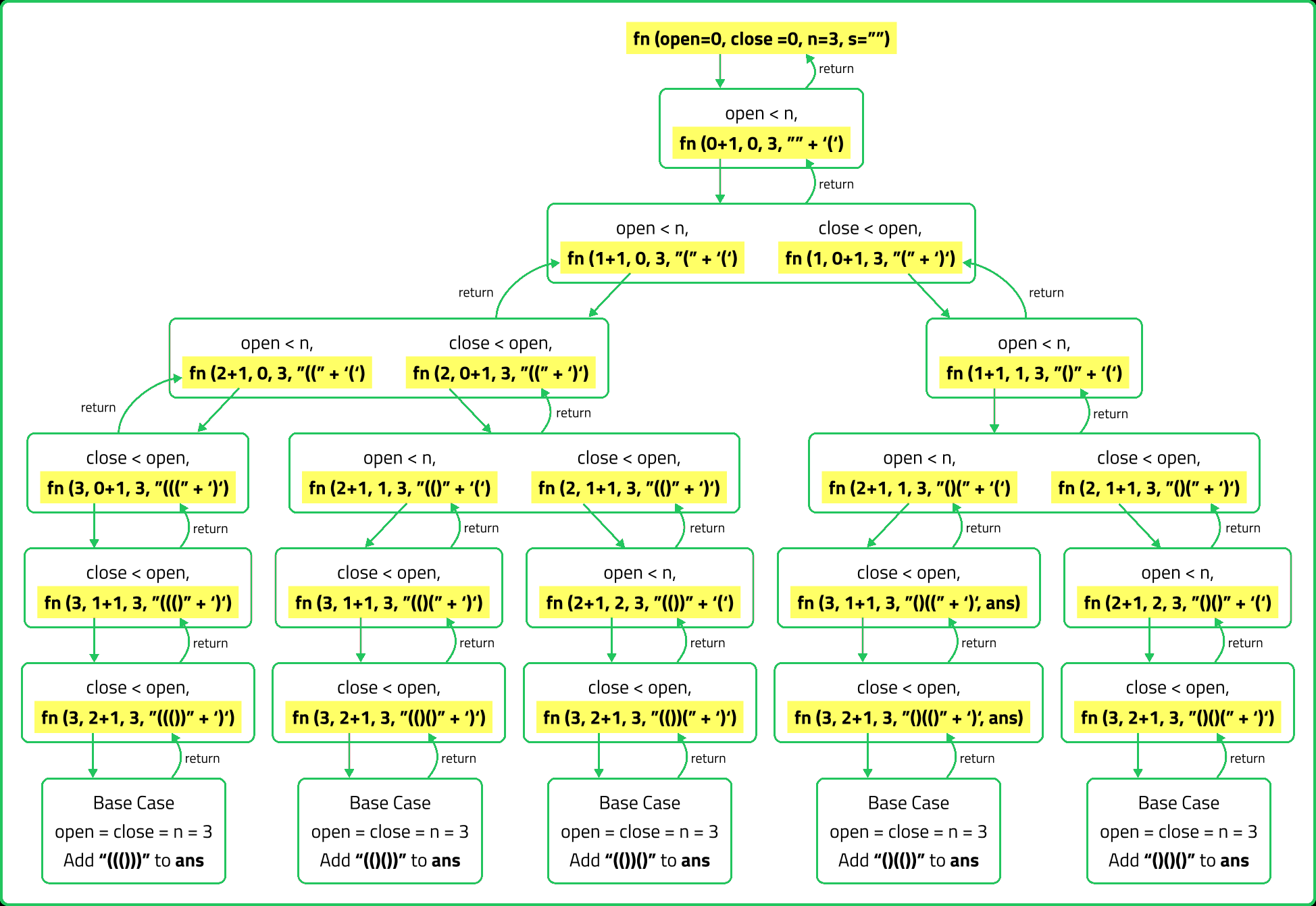Generate Paranthesis
Recursion
Implementation Problems
Easy
- Fun Fact: The concept behind well-formed parentheses is key in developing various software tools, especially in language parsing libraries and compilers
- Programmers often deal with nested structures like functions, loops, and conditionals in coding, which are represented using parentheses, braces, etc
- The formation or validation of these correctly structured parentheses and other symbols is of utmost importance for the correct interpretation of the code
- Similarly, tools for checking the validity of XML or JSON also use this concept to ensure the correct pairing and nesting of tags and braces
Given an integer n.Generate all possible combinations of well-formed parentheses of length 2 x N.
Examples:
Input : n = 3
Output : [ "((()))" , "(()())" , "(())()" , "()(())" , "()()()" ]
Input : 2
Output : [ "(())" , "()()" ]
Input : 1
Constraints
- 1 <= n <= 8
Hints
- Start with an empty string and keep adding ( or ) recursively. If the string has 2×n characters, add it to the result.
- Use a backtracking approach where you explore all possibilities and backtrack when the current combination is invalid.
Company Tags
Reddit
Texas Instruments
DoorDash
Lyft
Philips Healthcare
PayPal
Splunk
Rakuten
Zomato
Etsy
Walmart
American Express
Flipkart
Stripe
KPMG
Siemens Healthineers
Zoho
Intel
Uber
Epic Systems
Unity Technologies
Boston Consulting Group
Bungie
Cerner
Freshworks
TCS
Cognizant
Accenture
Infosys
Capgemini
Wipro
